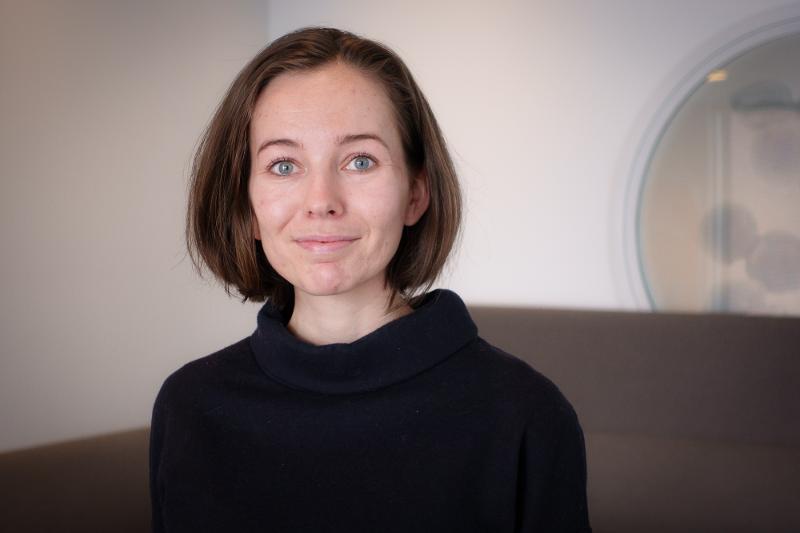From Proba to HealthIntro
Susanne Rolandsen replaces Oslo with Tromsø. Here she will research which obstacles refugees with health challenges face, when going through the Norwegian introduction programme.

- I have experience with research across cultures and experience with interviewing people about sometimes sensitive topics, says Susanne Rolandsen. She is a newly hired researcher in HealthIntro. Photo: Jan Fredrik Frantzen, UiT
- I have worked for three years with Proba in Oslo. There we did a number of assignments for, among others, the Directorate of Integration and Diversity (IMDi) and Kompetanse Norge. These projects have given me good insight into the introduction programme and what information the refugees receive, she says.
Rolandsen and the other project members in part study two will now investigate how the cooperation between the various public bodies works. How do rules and legislation affect the opportunities to make adjustments for refugees with health challenges - and does the refugee himself have the opportunity to influence how the introduction program is set up?
Ready for action
As a researcher in HealthIntro, she will now begin interviews with both refugees and those who help them get a good start in Norwegian society.
- There have been a number of interviews in the project before I started, but I am a restless soul and hope to get started quickly with my part of the interviews with health personnel, teachers and others in the municipalities who work with refugees. The next step will be in the autumn of 2022, when we plan to interview the refugees themselves, explains Rolandsen.
Researched sexual health in Ethiopia
Rolandsen studied sociology at UiT between 2011 and 2018. She has always been concerned with the gender aspect in research and did her master's thesis on sexual and reproductive health among students in Ethiopia.
- My findings indicated that the understanding of gender and sexuality affects the students' behaviour and their sexual and reproductive health to a large extent and in several ways. For example, many of them had not received sex education, they did not know about the health services on campus, and they did not know where to get contraception.
This had unfortunate consequences among the students.
- Many also avoided buying contraception for fear of being seen, as it is not considered acceptable to be sexually active before you are married. Several young, unmarried people actually had unprotected sex to avoid reactions and stigma.
Now she brings the experiences from her master's thesis and from her work in Proba into HealthIntro, including expertise in qualitative methods and analysis - and a gender perspective on research.